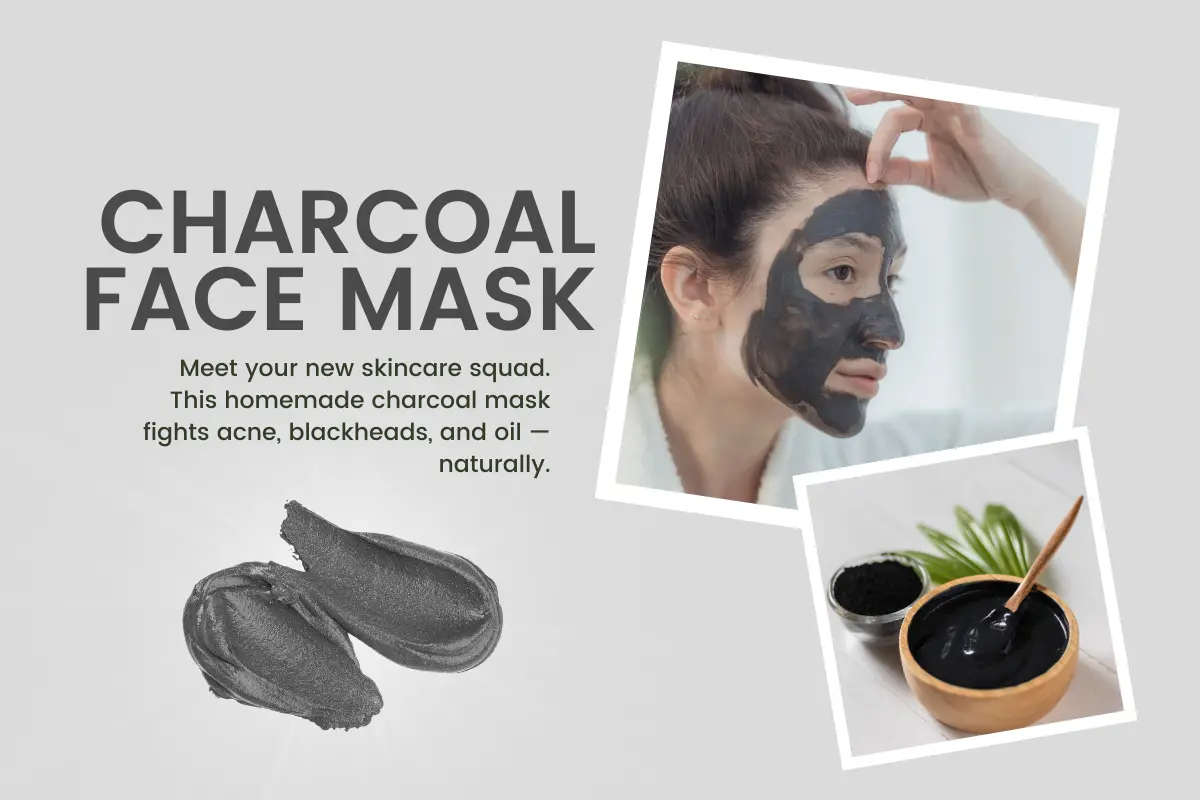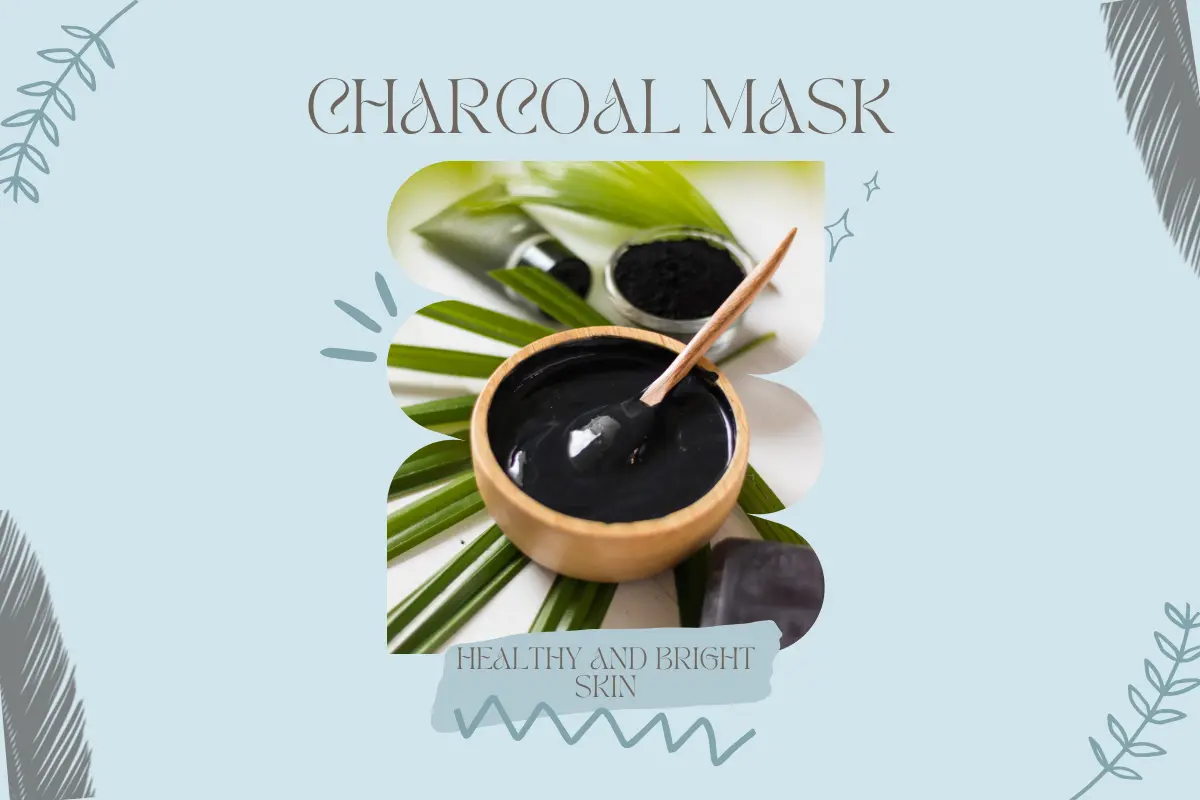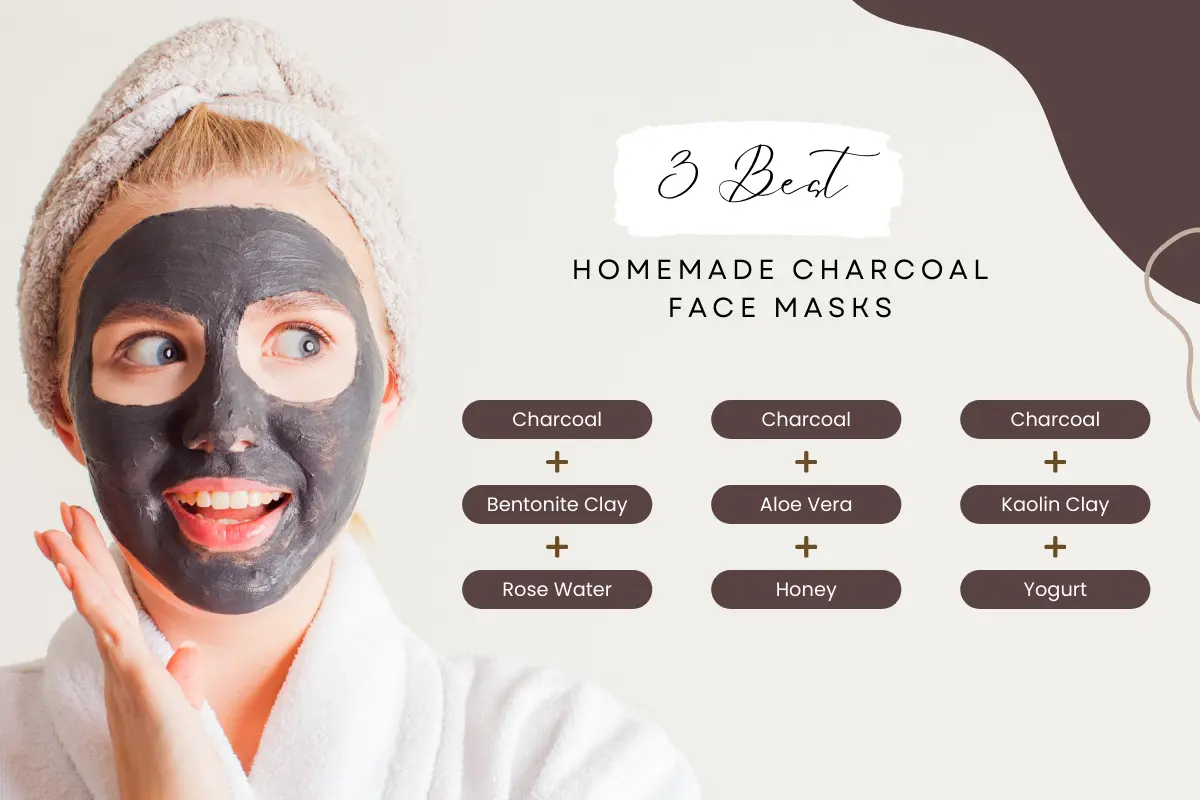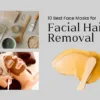No products in the cart.

Let’s be real — oily skin, stubborn acne, and those annoying little blackheads can be a nightmare. But what if I told you the solution could be sitting right in your kitchen (or just a quick store run away)? Yep, we’re talking about the homemade charcoal face mask — a natural, budget-friendly, and actually-fun way to deep clean your skin.
I’ve been obsessed with finding the best charcoal face mask that actually works, and spoiler: making your own is way easier than you think. Let’s dive in!
What is a Charcoal Face Mask and Why Does it Work?
Here’s the short version: a charcoal face mask is made with activated charcoal — a super-porous form of carbon that acts like a magnet for oil, dirt, and gunk.
Think of it like a vacuum cleaner for your pores. When you use a charcoal mask for oily skin, it sucks up excess oil (bye-bye midday shine), grabs onto dirt, and lifts away impurities you didn’t even know were there. A charcoal mask for acne can help reduce breakouts by keeping your pores clean, while a charcoal mask for blackheads can loosen up those pesky plugs so they wash away easily.

Benefits of a Charcoal Face Mask
Using a natural charcoal face mask can help you:
- Control oil – Perfect if your skin turns into a slip-n-slide by the afternoon.
- Tackle acne – The charcoal mask for acne works by removing oil and surface bacteria that can lead to breakouts.
- Clear blackheads – Seriously, a charcoal mask for blackheads feels like pressing the reset button on your nose.
- Smooth texture – Your skin feels baby-soft right after you rinse.
- Freshen up – Like a mini detox session for your face.
Ingredients You’ll Need for a Homemade Charcoal Mask
Making the best charcoal face mask at home isn’t hard — you just need the right ingredients:
- Cosmetic-grade activated charcoal (not the stuff for your barbecue!)
- Bentonite or green clay (for extra oil control)
- Aloe vera gel or honey (to keep skin happy)
- Water or rose water (for mixing)
- Tea tree oil (optional for acne-prone skin)

How to Make Your Own Homemade Charcoal Face Mask
Here’s my go-to recipe for a homemade charcoal mask:
1. The Oil-Absorber (Best for Oily Skin)
1 tsp activated charcoal powder
1 tsp bentonite clay
1 tsp rose water or plain water
Mix into a smooth paste. Apply to face for 10 minutes. Rinse with warm water.
2. The Acne Fighter
1 tsp activated charcoal
1 tsp aloe vera gel
½ tsp raw honey
Mix well, apply, and leave for 8–10 minutes. Perfect charcoal mask for acne days.
3. The Blackhead Buster
1 tsp activated charcoal
1 tsp kaolin clay
1 tsp yogurt
Apply for 10 minutes. This charcoal mask for blackheads gently loosens clogged pores while yogurt’s natural acids smooth your skin.
How to Apply it the Right Way
Don’t just slap it on and hope for the best. Here’s how to make it count:
- Wash your face first so the mask can do its job.
- Apply evenly with your fingers or a brush.
- Keep it on for 8–12 minutes.
- Don’t wait until it’s cracking and flaking — that’s too long.
- Follow up with a lightweight moisturizer.
Safety Tips You Shouldn’t Skip
- Always patch-test first — your skin will thank you.
- Use cosmetic-grade activated charcoal only.
- Don’t inhale the charcoal powder when mixing (your lungs are not invited to this spa session).
- Skip if you’ve got cuts, sunburn, or serious irritation.
Glow with Hudira
Take your glow game up a notch with Hudira’s skincare picks. We’ve got gentle, 100% natural face masks that give you spa vibes without the spa bill.
Click,”SHOP” — it’s that easy. Your skin’s new BFF is just a Hudira cart away. Follow us on Facebook for more beauty tips.
Final Thoughts
Personally, I swear by my natural charcoal face mask once a week — my skin feels cleaner, smoother, and way less oily. And the fact that it’s cheap and fun to make? Total bonus.
So grab your charcoal, mix up your favorite recipe, and say hello to cleaner, happier skin.
FAQs
Q. How often should I use a charcoal face mask?
Once a week is your golden spot. If your skin isn’t freaking out, twice a week is okay—just don’t overdo it or you’ll dry out your face.
Q. Can a charcoal mask help with acne?
Totally—kind of. A charcoal mask for acne helps zap oil and surface gunk, which may help pimples pop less often. But for big cysts or persistent zits, you’ll still need real acne meds.
Q. Will a charcoal mask remove my blackheads?
Yep! A charcoal mask for blackheads pulls away oil and debris that clog pores. It won’t suck out deep blackheads completely, but it definitely softens them up for easier removal.
Q. Is charcoal safe for oily skin?
Yes! A charcoal mask for oily skin works wonders—like a sponge for extra shine. Just patch-test first and don’t let it stay on as long as a baking clay mask might.
Q. What’s the best charcoal mask to make at home?
The simplest winning combo? Activated charcoal + bentonite clay + a bit of water (or honey if you want soothing). That’s the homemade charcoal mask that keeps skin calm and clear.
Q. Can charcoal masks be drying or irritating?
Oh, for sure. If you leave it on forever, it can suck out too much moisture. So keep it under 12 minutes and use aloe or honey in the mix if your skin is sensitive.
Q. Are peel-off charcoal masks okay to use?
I mean, they feel fun—but they can be a jerk and yank your skin or hairs. A gentle wash-off clay explains better chemistry than a peel-off, honestly.
Q. Should you use a charcoal mask if you’re on acne meds?
Yes—but keep them on different nights. Mixing strong acne treatments and the mask in the same go can irritate your skin. Alternate for happy, balanced skin.
Q. Is charcoal face mask natural?
It can be! If you mix your own at home using charcoal powder, clay, and aloe or honey, it’s totally a natural charcoal mask that’s cleaner than most store-bought versions.
Q. Can I cook with activated charcoal—or breathe it in accidentally?
No, no, no! Only use cosmetic-grade charcoal—and don’t sniff the powder or you’ll regret it (hello sneeze attack!). Definitely don’t cook with it unless you’re a pro mixologist.



Add comment